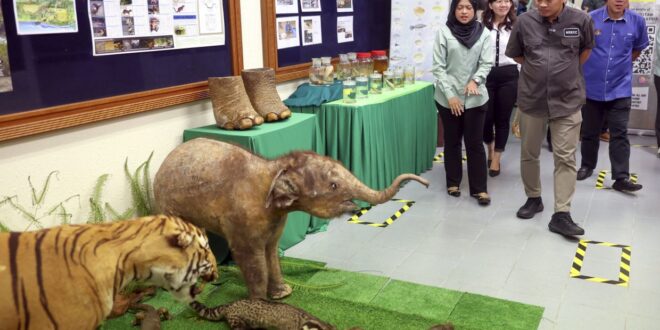BERA: The Klias Peninsula in Sabah, as well as Loagan Bunut and Sarikei in Sarawak, are being nominated to be recognised as the country’s new Ramsar sites, says Natural Resources and Environmental Sustainability Minister Nik Nazmi Nik Ahmad.
He said the ministry is in the midst of preparing the necessary documents for the nomination as they also expect the recognition will be obtained within a year or two if everything goes according to plan.
A Ramsar site is a wetland of international importance under the Ramsar Convention, which is also known as the “Convention on Wetlands” – an intergovernmental environmental treaty established by Unesco in 1971, and named after the city of Ramsar in Iran, where the convention was signed that year.
Nik Nazmi also invited other states to propose their own wetlands for consideration as Ramsar sites, as they may have a better understanding of their respective areas.
“The ministry is ready to assist state governments, and can even share the technical criteria for a particular area to qualify as a Ramsar site.”
The minister said this after launching the World Wetlands Day 2024 celebration at the Tasek Bera Ramsar Site, which was also attended by Pahang unity, tourism and culture committee chairman Leong Yu Man.
The last Ramsar Site registered in Malaysia was in 2017, namely the Kota Kinabalu Wetlands in Sabah, bringing the total to seven so far, BK reported.
The others are Tasek Bera in 1994; Tanjung Piai, Pulau Kukup, and Sungai Pulai in Johor (2003); Kuching Wetlands National Park in Sarawak (2005); and Lower Kinabatangan-Segama Wetlands in Sabah (2008).
Nik Nazmi stated that Malaysia possesses a vast ecosystem of wetlands, covering over 5.19 million hectares, including geographical features such as peatlands, mangroves, rivers, and lakes that serve as habitats for various species of flora and fauna.
Tasek Bera, for example, is the country’s largest natural lake, spanning over 30,000ha.
Meanwhile, Leong said that the state government, through Tourism Pahang, is actively revitalising tourism at Tasek Bera with a new resort operator for the previously closed resort at the site expected to be appointed soon.
“Tasek Bera will once again become a key tourism product for the Bera district,” she said.
At the event, Nik Nazmi also launched the Fishes of Tasek Bera book, which documented profiles of 36 families and 158 species of freshwater fish, including four newly-recorded species, with one species each having endemic and extinct status internationally.
 BeritaKini.biz Berita Viral Terkini di Malaysia
BeritaKini.biz Berita Viral Terkini di Malaysia





